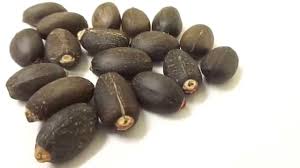BY MOSES DHILIP KUMAR
The
Recent depletion and fluctuation in prices due to uncertain supplies for fossil
fuel, make us to search renewable, safe and non-polluting sources of energy. India is not self sufficient in petroleum and
has to import about two third of its requirements. Presently Indian Government
spend Rupees 90,000 crores for petroleum fuel and annual consumption is around
40 millions tons.
One of the solutions to the current oil crisis and toward off
any future energy and economic crunch is to explore the feasibility of
substitution of diesel with an alternative fuel which can be produced in our
country on a massive scale to commercial utilization. Indian Government, research institution
and automobile industries are taking
interest on bio-diesel from various non-edible oil bearing trees like Jatropha,
Karanji, Mahua & Neem.
As India is short
of edible oils even for human consumption and since the cost of edible oil is
also very high, it is preferable to use non-edible oils. Jatropha curcas is one of the prospective
bio-diesel yielding crops. This paper
highlights our work on alternate fuels and the importance of choosing jatropha.
It reduces pollution drastically in terms of sulphates and carbon mono-oxide.
To start with, we reduced the viscosity problem faced to a large extent by
carrying out the transesterification process in our chemistry laboratory. we
also studied the cost factor involved in the usage of jatropha. Performance
test was conducted on an electrical loaded diesel engine and a study on the
emissions was made using Exhaust Gas
Analyser in our thermal laboratory.
The pollution levels came down drastically
and performance was better with various blends of jatropha and diesel.
PROBLEMS OF USING
JATROPHA
The major problem in
using the raw jatropha oil will be choking of the filter and other parts of the
engine. Further, due to its high viscosity, raw jatropha oil can cause a lot of
trouble during cold seasons. Also, the following major problems could be faced.
Due to higher density of jatropha oil, the atomization in
combustion becomes difficult.
Poor volatility accounts for improper vaporization and ignition
incapability. This also cause thermal cracking resulting in heavy smoke
emissions and carbon deposits in the engine. Also the durability of the engine
will be affected
The presence of wax contents in the oil causes formation of gum in
the combustion chamber
The above
mentioned difficulties cause fluctuation of load after some period of operation and ultimately lead to breakdown
of the engine. Hence it is difficult to use Jatropha oil without further
processing as fuel in a direct injection engine. It either requires the oil to
be processed further or some modifications should be made in the engine. The
viscosity of oil was reduced by the trans esterification process.
dear readers experiments under process next post i will post all chemical process stay with me
thanks for visit my site






No comments:
Post a Comment